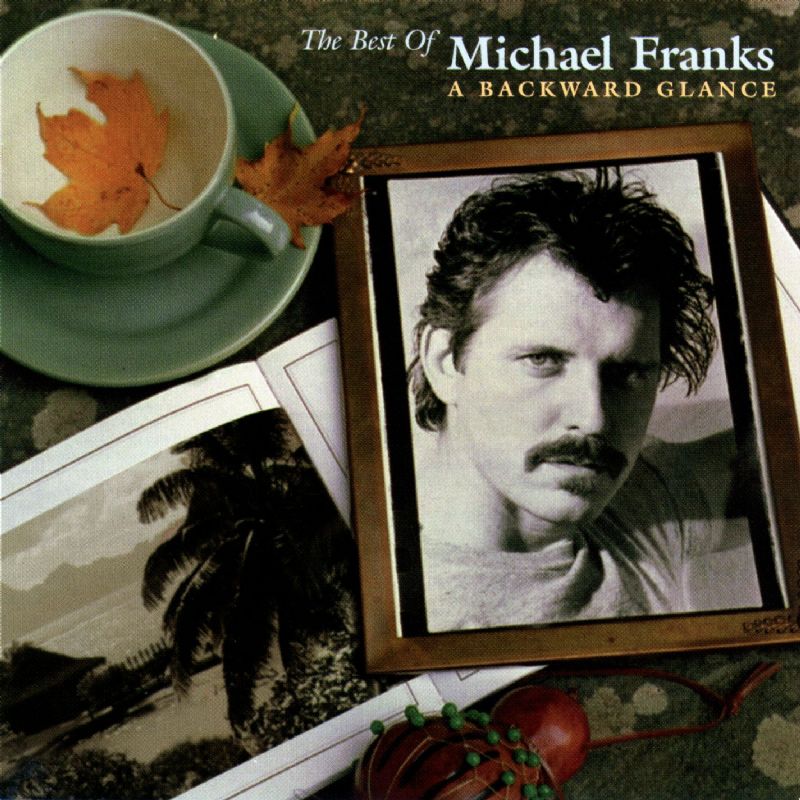An Eloquent Tribute to Jobim

Michael with his hero
Antonio Carlos Jobim, 1978
I must confess: I adore Brazilian jazz. Its seductive lyrics, exotic percussion, and gorgeous chord changes combine to make Brazilian jazz one of the most romantic — and unappreciated — music genres. Artists like Antonio Carlos Jobim have been unfairly dismissed as creators of “lounge music,” a bachelor pad soundtrack frequently lampooned in films like Austin Powers. Instead, the genre should be acknowledged as being a sophisticated combination of world music and jazz.
In 1994, Brazilian jazz legend Jobim passed away. One year later, one of his most ardent fans and occasional collaborators, Michael Franks, expressed his sorrow and admiration by releasing Abandoned Garden, a moving and exquisite tribute to his longtime friend. Best known for quirky songs like “Popsicle Toes,” Franks has maintained a steady output of albums filled with jazz and pop influences, set to eccentric but intelligent lyrics. While Franks has recorded a steady stream of quality albums, Abandoned Garden remains his most heartfelt, personal, and lovely work. The CD’s first track, “This Must Be Paradise,” sets the tone for the rest of the album. The soft strumming of the guitar melds into Franks’s voice, which croons: “See that shadow cross the mountain/summer in the warbler’s eyes/beauty never is forgotten/though the moment passes by.” Immediately the listener is drawn into a sort of alternate universe filled with natural beauty, where time comes to a virtual standstill. “Bird of Paradise” vividly paints a picture of a private beach, clear water, and a beautiful woman by his side. It could be seen as a continuation of Jobim’s “Girl from Ipanema.” “Hourglass,” a delicate ballad, perfectly exemplifies Franks’ superior lyricism. Does it describe a love affair or musings on the nature of time? The beautiful acoustic guitar, melded with quiet piano, adds to the song’s romantic atmosphere.
From the Abandoned Garden photo shoot.
Franks picks up the tempo a bit with “A Fool’s Errand” and “Cinema,” the latter being one of my favorite tracks. “Cinema” depicts a woman finding her true love, but the language evokes a movie. “Love never lasted off screen… losing each new leading man/to those unhappy endings” Franks narrates. Like many of his songs, this one has a happy ending: “Enter the one/that the author created especially for her/the focus blurs/the composer writes strings,” a perfect summary of a typical romantic comedy. Only two songs seem slightly out of place on Abandoned Garden: “Somehow Our Love Survives,” a remake of his original collaboration with Joe Sample (previously included on Sample’s Spellbound album); and “In the Yellow House,” a piece from his long-delayed musical Noa Noa (based on the life of Gauguin). Both are pleasant tracks, but serve as a brief detour from the album’s overall theme. Abandoned Garden’s tour de force, however, is the title track. “Abandoned Garden,” which appropriately closes the album, serves as Franks’s eulogy for Jobim. In this song, nature mourns Jobim, since he planted the seeds of frangipani, jacaranda, camellia, and jasmine (images commonly present in Jobim’s music). The crux of this track — as well as the entire album — lies in the refrain: Though the samba has ended, I know in the sound
Of your voice, your piano, your flute, you are found,
And the music within you continues to flow
Sadly, lost Antonio.
You were my inspiration, my hero, my friend;
On the highway of time will I meet you again?
If the heart ever heals, does the scar always show
For the lost Antonio?
For the lost Antonio? Thus, with superior musicianship and carefully-crafted lyrics, Franks’ tribute to Jobim ends. One can imagine Jobim appreciating this album, as it perfectly captures his language, chord changes, percussion — everything present in a Jobim creation.
 Interestingly, Abandoned Garden became Franks’ final album with Warner Brothers Records. In 1999 he resurfaced on Windham Hill, releasing Barefoot on the Beach, an uneven collection of smooth jazz. By 2006 he moved to Koch Records, where he released Rendezvous in Rio, a sequel of sorts to Abandoned Garden. While Rendezvous in Rio marks a great improvement over Barefoot on the Beach, it still cannot match Abandoned Garden in quality and beauty. Michael Franks continues to produce quirky, catchy jazz albums. However, in my opinion, Abandoned Garden will be his greatest legacy. :: Kit O'Toole ::
Interestingly, Abandoned Garden became Franks’ final album with Warner Brothers Records. In 1999 he resurfaced on Windham Hill, releasing Barefoot on the Beach, an uneven collection of smooth jazz. By 2006 he moved to Koch Records, where he released Rendezvous in Rio, a sequel of sorts to Abandoned Garden. While Rendezvous in Rio marks a great improvement over Barefoot on the Beach, it still cannot match Abandoned Garden in quality and beauty. Michael Franks continues to produce quirky, catchy jazz albums. However, in my opinion, Abandoned Garden will be his greatest legacy. :: Kit O'Toole :: Comment
© 2026 Created by Edie Antoinette.
Powered by
![]()


You need to be a member of I Grew Up In Chicago to add comments!
Join I Grew Up In Chicago